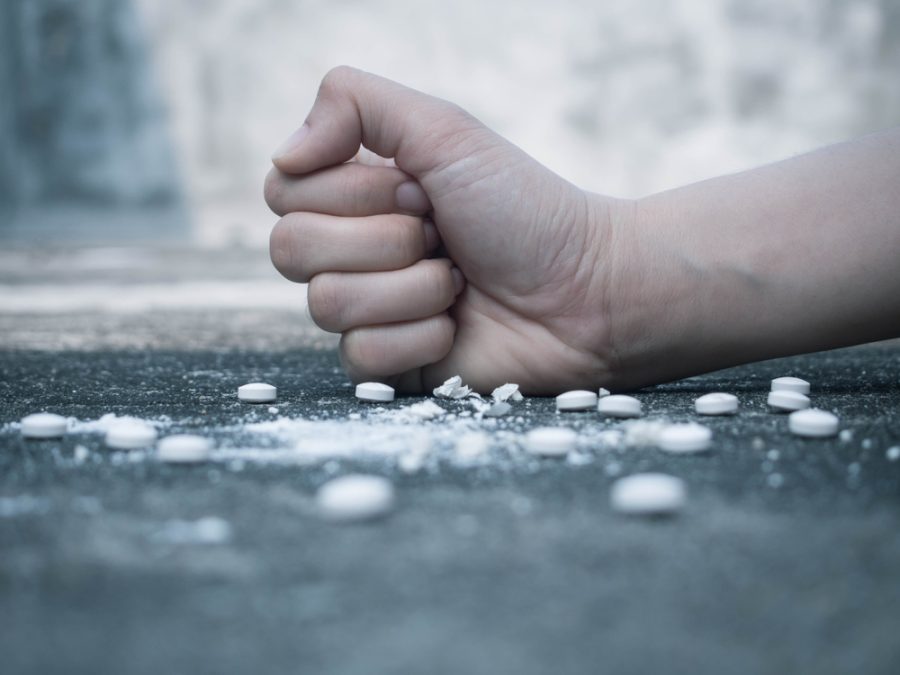
This is a personal account from Carissa Sawyer, a woman in recovery from heroin addiction. This story details her heroin addiction, her path to recovery, and the progress she made through medically assisted detox in a clinical setting.
I was addicted to heroin for ten years. What started with taking prescription pain pills from my doctor quickly spiraled into me buying higher doses of my pills on the streets. My habit eventually became too expensive, but that just made me switch to heroin to get my high. At first, I snorted it, promising myself I would never shoot up, but it didn’t take long before I crossed that line, too.
Everything got ugly fast. My husband had been using with me, and soon he was facing 5 years of prison time for getting into a car accident with opiates in his system. When he went off to prison, I struggled to feed my addiction on my own. Before long, I lost everything. My husband, my home, my vehicle, my self-respect; all of them were gone. This was my rock bottom.
I wanted to stop using heroin; I was miserable and exhausted and I despised the person I had allowed myself to become. But the dread of withdrawal kept me from getting clean for so long. I kept using because I didn’t believe I could make it through the withdrawals. I did some research online, and I knew the physical symptoms were terrible, but the mental health effects were what kept me from quitting.
Long before I started using opiates, I had a lengthy history of depression, anxiety, and bipolar disorder. The most severe episode happened when I attempted suicide as a teenager. As I read countless personal accounts of plummeting mental health during opioid withdrawals, I was sure that my chances of surviving detox were slim to none.
Getting Help with My Heroin Addiction


Finally, though, I realized that there was no way I could survive my heroin addiction, either. I started a medically assisted detox program, and that’s where I was first prescribed suboxone. For my initial appointment, I only had to go and discuss my history with opioids to help develop a treatment plan. Because I was such a heavy user, I started off with 16 mgs of suboxone every day; 8mg in the morning, 8mg at night. Within an hour of taking my first dose, I noticed a decrease in some of my symptoms: The sweats were subsiding, and the nerve and body pain eased. I didn’t feel as on-edge as I did before taking the suboxone. There was no doubt that I was still in withdrawal, but the suboxone made it infinitely more tolerable.
I won’t lie, though, the first week was tough. My entire body felt strange with new aches and other withdrawal symptoms. But in hindsight, that was something of a blessing. I was so fixated on my bodily symptoms that I barely felt the cravings.
During the first week, I slept a lot to make the time pass more quickly. I went to my treatment center twice a week, where they made sure I wasn’t using again and checked in on my symptoms and mental health. By the second week, I started coming back to life. I didn’t need to sleep the days away, and I was even starting to be productive. The cherry on top: My physical symptoms were finally subsiding. Unfortunately, that also meant that I could focus on the mental effects of heroin withdrawal.
Now that my body had settled down, it was time to work through the psychological aspect of withdrawals. I started to struggle with the adjustments that come with breaking a habit. I was anxious and on edge, and if I had any spare time, I couldn’t sit still. I’d need to get up, to move, to do anything but sit there with my thoughts.
I soon realized that if I wanted to succeed, I had to take away the option of acquiring drugs. That’s why I deleted all drug-related contacts from my phone; I no longer had anyone to buy from. I stayed home unless I went out with one of my parents. It felt a bit like being a teenager again, but it was necessary to get me through the worst of my withdrawal.
Achieving Long-Term Recovery
After a couple of months, the worst was over, and I started concentrating on taking care of myself. By this time, my doctor and I had scaled my appointments back to once a month because I was doing better and never failed any of my drug screenings. This is when I began going to therapy to deal with the underlying mental health issues that had contributed to my addiction in the first place.
After a successful year of suboxone treatment and professional mental health care, I felt safe lowering my dosage. My doctor cut down my dose 2mgs at a time until, and he worked with me to monitor any new symptoms and make sure I was still in control. I listened to my body, and if I found any new symptoms, I told my doctor and stayed at that dose for a while. Eventually, I got down to 8mgs a day; half my starting dose.
I recently celebrated 5 years of sobriety. Today I am still going to therapy and working my suboxone program. Now I break my monthly 8mg pill into smaller sections and I administer a tiny piece to myself every morning when I wake up. I no longer need a second dose at night.
Without a doubt, the suboxone program saved my life. Suboxone wasn’t a magic pill that made my detox easy, but it made the withdrawal process bearable, and that made all the difference. Treating my mental health issues was the other piece of this puzzle. Continuing therapy has helped me understand why I used drugs, and working on those issues has helped nearly every facet of my life. I am so thankful I went through this treatment; it was the best decision I could have made for myself and my loved ones.
If you have questions about medication assisted detox at The Blackberry Center, please contact our admissions specialists at 407-449-7810. They will be happy to discuss what programs and treatments we offer, including detox, inpatient treatment, and outpatient care.
The post Surviving Heroin Withdrawals with Medical Detox appeared first on The Blackberry Recovery Center of Central Florida.
Source
Original Author: The Blackberry Center

